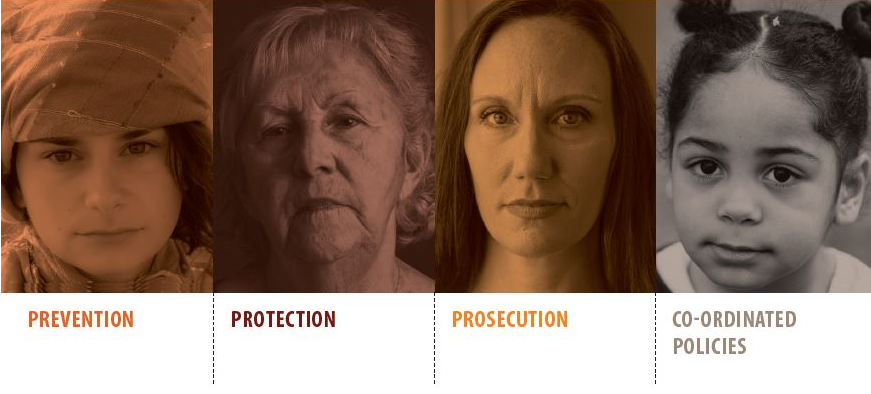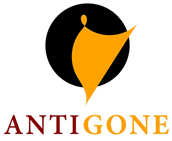
The “Istanbul Convention”, the Council of Europe Convention on preventing and combating violence against women and domestic violence is effective since 1 August 2014, upon 10 ratifications including 8 by CoE member states. Each country that ratifies the Istanbul Convention legally undertakes to provide support and assistance to all girls and women who are victims of violence and to prevent, prosecute and eliminate all forms of violence within the Convention. The provisions deal with support and protection measures, legislation and law enforcement, policy measures and data collection, collaboration at all levels of society, preventive work and education, and international cooperation.
The Istanbul Convention is at present the most progressive and comprehensive convention on preventing and combating men’s violence against women, violence in close relationships, honour-related violence and oppression. The convention states that men’s violence against women is an expression of unequal power relations.
In order to combat violence, measures must be taken against the root causes, such as norms, practices and societal structures, which justify violence and perpetuate inequality. At the same time, the rights and needs of victims of violence must never be ignored.
The work shall cover all relevant actors, such as government agencies, local, regional and national authorities as well as decision-making assemblies, national human rights organizations and the civil society.
The implementation must be based on a gender perspective. The provisions of the Istanbul Convention shall be implemented without discrimination on any ground. Therefore, the risk and the consequences of discrimination must always be taken into account.
By ratifying the Istanbul Convention, the country undertakes to implement the provisions of it through legislation and other measures to:
- promote gender equality and eliminate discrimination,
- protect girls and women from all forms of violence and address men’s violence against women from a holistic perspective,
- prevent and combat all forms of violence within the Convention.
An independent expert body, the Group of Experts on Action against Violence against Women and Domestic Violence (GREVIO), monitor the implementation of the Convention. The monitor process includes evaluations of each country and recommendations on measures to be taken. The reports and recommendations are important tools for civil society in each country to promote the full implementation of the Convention, and the civil society can report directly to GREVIO.
